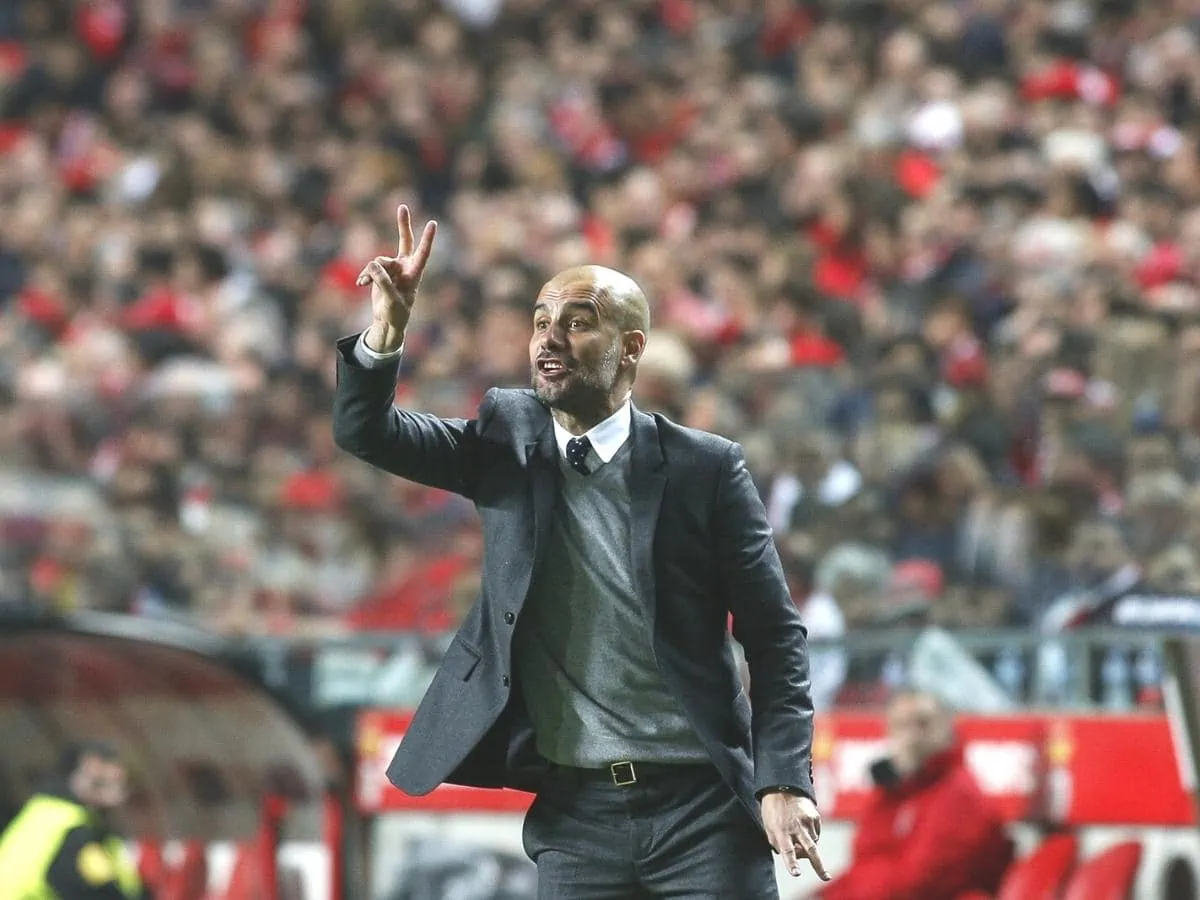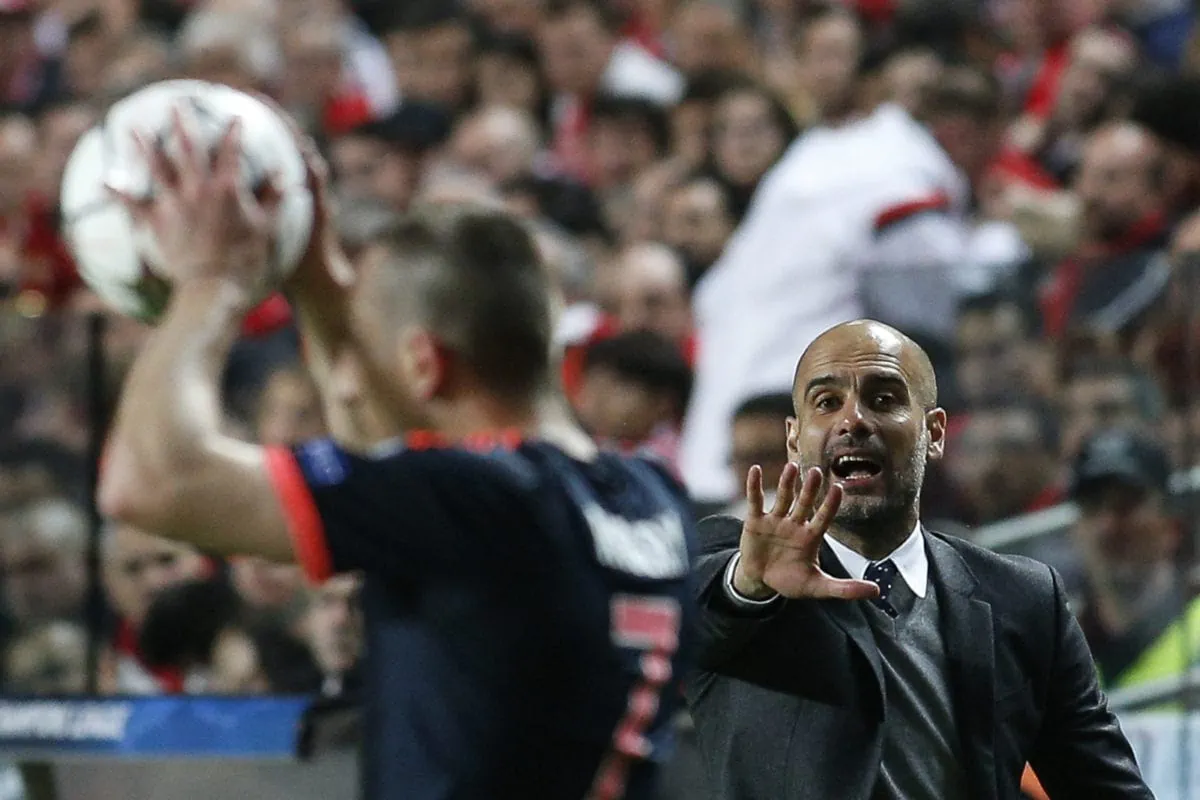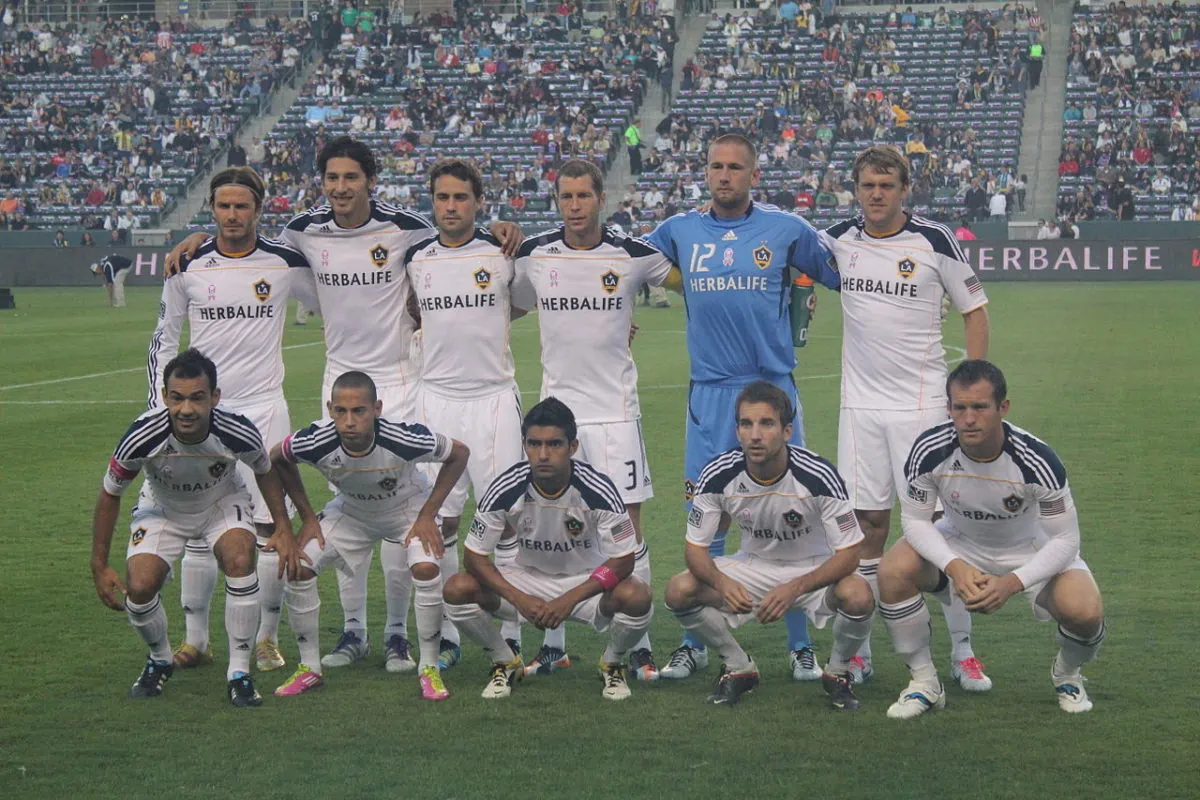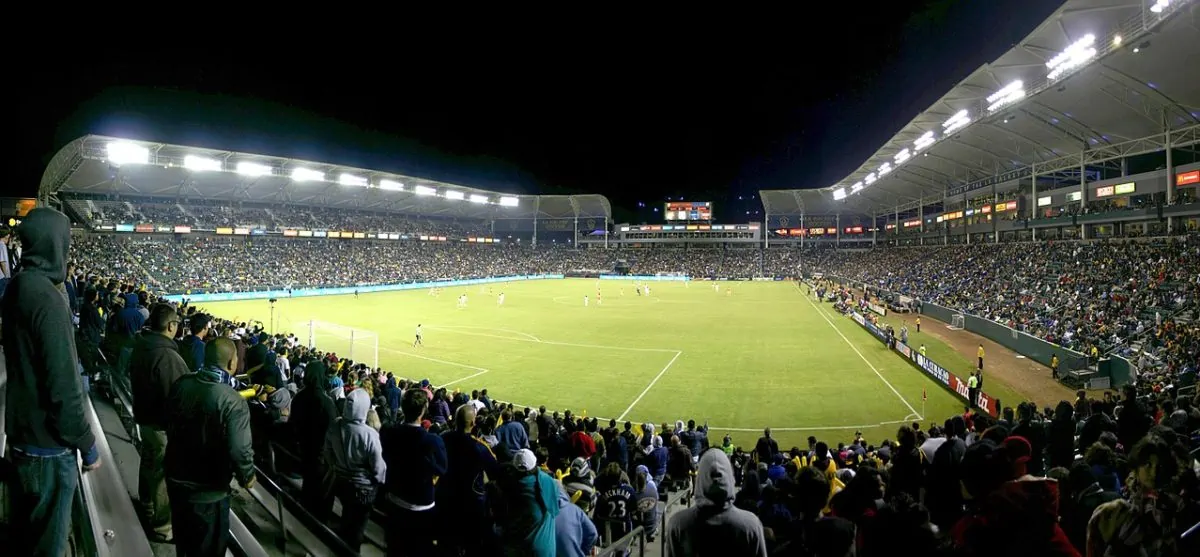Share the post "Team Manager in Soccer (Roles and Responsibilities)"
Most sports call the team’s leader a coach, but in soccer, they are sometimes called a manager, but is there a difference between these terms, or are they interchangeable?
A team manager is a person who runs a soccer club or a national team. Their responsibilities can be wide-ranging, including team selection, tactics choice, recruiting and transferring, players’ contract negotiation, and talking to the media.
In this article, we shall understand better what a manager is in soccer and what their roles and responsibilities are, among other things such as:
- Difference between manager and coach
- Qualifications of a team manager
- Role of a manager in high school
Read on to understand these terms better so that you can use them appropriately in future conversations.

- Role of a Team Manager in Sports
- Who Is a Team Manager in Soccer?
- Team Manager Vs. Coach
- Responsibilities of a Soccer Team Manager
- What Does a Team Manager Do in High School Soccer?
- Do You Have to Be a Soccer Player to Be a Manager?
- Can Anyone Become a Soccer Manager?
- What Makes a Good Team Manager?
- Is Team Management a Skill?
- Soccer Team Manager Salary
- Soccer Team Manager Apps
Role of a Team Manager in Sports
In every sport, every team has to have a manager. A team manager oversees all aspects of an athletic team, including training and competitions. They are also responsible for athlete education and training.
A manager is also responsible for the coaches and other teams’ technical personnel. In addition, they are tasked with endearing the team to the community.
A profession in sports management might require a degree, although the degree does not need to be specifically in sports management.
For example, as a sports manager, you might need knowledge of accounting, public relations, law, and taxation, among many other fields.
Therefore bachelor’s in business studies, marketing, communication, or even finance can come in handy.

Who Is a Team Manager in Soccer?
A manager of soccer is the person in charge of the soccer team. They are responsible for the team’s welfare, training, and how they play.
They also have the last word on who plays and is on the bench. In addition, they decide the play formations and the tactics on the pitch.
A soccer manager is also responsible for the team’s talent, including recruiting, contract negotiation, and loan arrangements.

Team Manager Vs. Coach
A manager is known to have a greater involvement in a club with transfers, structures, youth setup, development, and the team. In contrast, a coach concentrates on the team, training, and tactics with less involvement in running a club.
Although there is a distinction between the two, people use the same terms to describe a team leader, but there is no definitive answer.
While some clubs have a technical director responsible for recruiting players, a coach is left to focus on the team.
The term team manager is almost exclusively used in British soccer. However, in most European countries where they play professional soccer, the managers are usually just known as coaches.
But in North America, the two roles of a soccer manager and a coach exist. Although one person can sometimes be responsible for the two roles, their responsibilities are split.
In such an arrangement, the first-team coach is usually an assistant to the manager.
Coaches;
- Coaches are known for organizing a team, players, training, and tactics.
Managers;
- Managers manage a team and get involved with transfers, youth development, and the structure of the club/team.

Responsibilities of a Soccer Team Manager
A soccer team manager has several responsibilities. These responsibilities include:
1. Selecting the team for upcoming matches
The manager is responsible for naming a squad for the upcoming matches. While naming the team, they have to consider the injuries in the team, players who are out of form, and the intensity of the forthcoming match.
If they have several games, the manager has to know how to spread his team to control fatigue and injury while ensuring they do not sacrifice the team’s integrity.
2. Selecting Team Formation
Although specific managers prefer certain formations, these formations are not cast in stone. Depending on the team they are playing against, the availability of players, and the team’s strength, the manager might prefer a specific formation over another.
A manager must choose the appropriate team formation and adapt when necessary.
3. Strategizing and Giving Instructions
Before the players go onto the field, they usually have a playing strategy given by the team manager. Nonetheless, the manager observes the game, how his players are playing and how the opponent responds and can adjust the strategy on the fly.
Therefore, the manager can instruct their players while they are playing to keep changing until they find their optimal strategy for the specific ongoing game.
4. Motivating Players
A team manager’s responsibility is to maintain the team’s morale. They are responsible for ensuring that the team’s attitude is positive and the players are psyched up for the match.
The changing room conversations are essential to bolster players’ mood and confidence. Also, the manager’s attitude during the game goes a long way in motivating the players to continue pressing.
After the game, even when the team loses, it is the manager’s responsibility to ensure the players do not give up.

5. Delegating Duties to Technical Support
Managers cannot run a team all by themselves. They need help. Also, a team might have several teams, including the juniors and others in competitions and leagues apart from the main team.
Therefore, a team manager needs a lot of assistance to manage the whole team effectively.
Also, a lot goes into making a soccer team competent. Help from other experts, including medics, nutritionists, physical trainers, and more, is vital to a team’s success.
That said, it is the responsibility of a team manager to delegate these duties according to the strengths and qualifications of the technical support team members.
6. Scouting for Talent
A team needs to have a reliable pipeline of players for consistently high performance.
A team manager’s responsibility is to scout for young players in academies and reserves and encourage their development. Under his monitoring, he ensures the team’s future is still bright.
7. Buying and Selling Players
To strengthen the team, a team manager can opt to buy specific talent that they feel will be a helpful addition to the team during the transfer window.
They can sell some players who no longer fit the team. They can also loan out players who can be helpful to other teams, but the team is not yet ready to cash in on them.
8. Communication With the Media
A team manager is responsible for addressing the media before and after matches. Of course, some senior players can do it, too, but the manager must set the tone and message that the press will receive.
9. Marketing the Club
Such roles are usually in small clubs. In such clubs, the team manager is responsible for popularizing the team and earning a fan base to support their team and purchase their tickets and merchandise.
10. Growing Turnover
The responsibility of growing turnover and keeping the profitable club falls under the team manager in small clubs. In small clubs, the manager handles the club’s business side, and it is up to them to ensure the club is thriving on the pitch and paper.

What Does a Team Manager Do in High School Soccer?
There is usually a high school student who is a team manager. The student ensures that the team equipment is available at every practice and game and is ready for use.
The team manager will record different aspects during the game and update the scorebook. In addition, they are responsible for timing the game and taking notes which coaches can use after the game.
High school team managers are not responsible for players’ equipment. However, every player is responsible for their gear’s cleanliness and maintenance.
Moreover, high school team managers are present at all team meetings. They can even be promising players, actively training with the team, but have the extra responsibility of being a manager.
During pre-season, they can have a chance to play. Usually, during games, they are not playing; they are dressed in a manager’s uniform.

Do You Have to Be a Soccer Player to Be a Manager?
Not necessarily. You need not be a soccer player to be a manager. Of course, it helps if you play since you understand the game from inside the pitch, but if you love the game and want to be part of it without playing, a soccer manager is an excellent way to participate.
However, you will need a soccer manager’s license handed out by a country’s soccer association. You can get a license after going through the soccer managing course.
Depending on the country’s soccer association directives as a player, you might skip some classes. Some managers like Avram Grant started their careers as soccer managers. Grant started as a manager at 18 years old.
A highlight of his career was when he led the Premier League club, Chelsea, to the 2008 UEFA Champions League. Other notable managers who were not players initially include Carlos Alberto Parreira and Arrigo Sacchi.

Can Anyone Become a Soccer Manager?
Anyone can become a soccer manager if they have the license to be a soccer manager. Their country’s soccer association can offer this. But most importantly, you have to be a soccer enthusiast to make an excellent team manager.
What Makes a Good Team Manager?
Becoming a soccer team manager is not enough. Becoming an outstanding manager is the goal. As a manager, you are responsible for players’ careers, and it is upon you to ensure they thrive.
A good soccer team manager has to have the following character traits.
- Be professional
- Be a good teacher
- Be friendly but also stern and demanding when necessary.
- Listen to your players
- Be a good communicator
- Pay attention to each player’s development.
- Be a motivator
- Be adequately prepared every time they show up
- Lead by example
- Curate the perfect environment for everyone on the team
Is Team Management a Skill?
Just like any other form of management, team management is a skill. So, you must take a team management course and learn what it takes to be an exemplary manager.

Soccer Team Manager Salary
Team management is a wonderful career option. On average, soccer team managers make $50,000 a year, but some can make $30,000 depending on the caliber of the team they are managing.
The thriving managers can make up to $65,000 a year, but the top earners can push it to $100,000 yearly.
The top one-percenters, for instance, Premier League managers, earn millions of dollars. Currently, the highest earner is Pep Guardiola of Manchester City, making upwards of $21 million a year.
Soccer Team Manager Apps
There are a variety of soccer team management apps. Preference for an app depends on the manager and the team, but here are some of the most notable applications.
- TeamSnap
- TeamStats
- Football Team Manager
- GameChanger
- Soccer Team Manager
- Soccer Manager 2021
- SportsEngine
- Ballhop
- Season Pro Football Manager
- Dream Squad
Share the post "Team Manager in Soccer (Roles and Responsibilities)"
Joel is a seasoned soccer journalist and analyst with many years of experience in the field. Joel specializes in game analysis, player profiles, transfer news, and has a keen eye for the tactical nuances of the game. He played at various levels in the game and coached teams - he is happy to share his insight with you.



